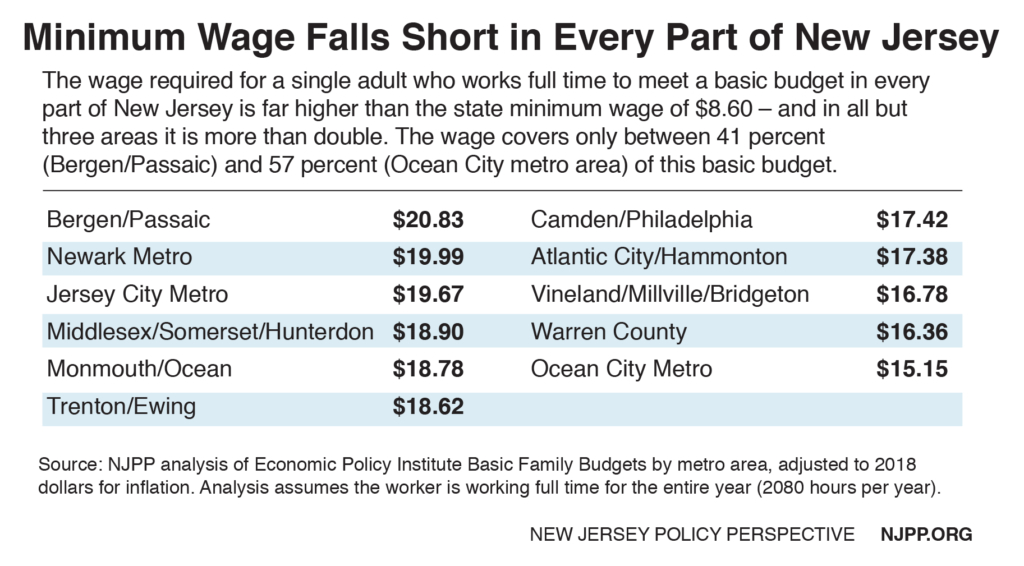Inflation adjusted January 1 increase is helpful, but not nearly enough for New Jersey’s low-paid workers or for the state’s economy, as our new report shows.
A full-time worker at the minimum wage in 2018 will take home less than $18,000 for the year, assuming they don’t take any time off. According to analysis by the Economic Policy Institute, a single worker in the Garden State needs to make $37,974 in 2018 just to earn a wage that can provide stability.
Fortunately, Governor-Elect Murphy and legislative leaders have made it clear that they intend to increase the minimum wage to $15 per hour, a move that would help a diverse group of workers – nearly 25 percent of the workforce – and improve their chances of being able to provide for themselves and their families in our high-cost state.
Here are some key facts about New Jersey’s January 1 minimum wage increase:
* The January 1 wage increase will boost the pay of 300,000 low-paid New Jersey workers, or 7.5% of the state’s workforce.
* Of these 300,000 workers, 91,000 are directly affected (meaning they currently make between $8.44 and $8.60 per hour) and the remaining 209,000 are indirectly affected (meaning they currently make between $8.60 and $8.76 per hour, and will see an increase in their pay as employers adjust their pay scales upward to reflect the new minimum wage).
* The new minimum wage still falls very short of what it takes to get by. In fact, it covers just 41-57% of the basic household budget for a single adult full-time worker with no children.
* Four of every five workers who will get a raise (81 percent) are at least 20 years old, while most are working either full-time (45 percent) or between 20 and 35 hours a week (33 percent). Almost half – 44.6 percent – have attended or finished college, and an additional 30 percent have finished high school.
* The majority, 56 percent, are women and one in five – 20 percent – are parents. A total of 111,000 New Jersey kids have at least one parent who will benefit from the January 1 increase. When looking at race and ethnicity, 44 percent of affected workers are white, 30 percent are Hispanic, and 18 percent are black.


